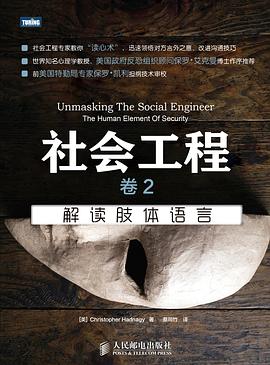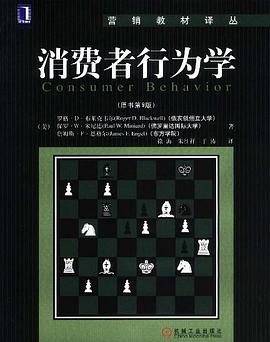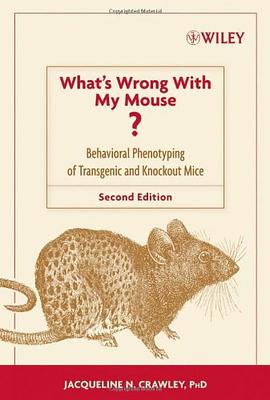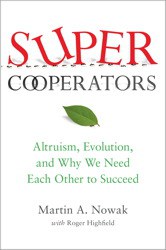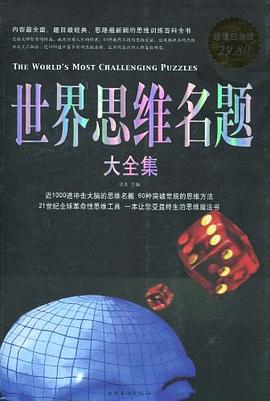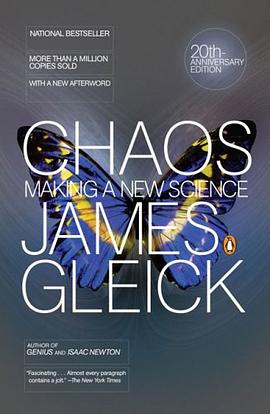

具体描述
Few writers distinguish themselves by their ability to write about complicated, even obscure topics clearly and engagingly. In Chaos, James Gleick, a former science writer for the New York Times, shows that he resides in this exclusive category. Here he takes on the job of depicting the first years of the study of chaos--the seemingly random patterns that characterise many natural phenomena.
This is not a purely technical book. Instead, it focuses as much on the scientists studying chaos as on the chaos itself. In the pages of Gleick's book, the reader meets dozens of extraordinary and eccentric people. For instance, Mitchell Feigenbaum, who constructed and regulated his life by a 26-hour clock and watched his waking hours come in and out of phase with those of his coworkers at Los Alamos National Laboratory.
As for chaos itself, Gleick does an outstanding job of explaining the thought processes and investigative techniques that researchers bring to bear on chaos problems. Rather than attempt to explain Julia sets, Lorenz attractors and the Mandelbrot Set with gigantically complicated equations, Chaos relies on sketches, photographs and Gleick's wonderful descriptive prose. --Christine Buttery
作者简介
James Gleick (born August 1, 1954) is an American author, journalist, and biographer, whose books explore the cultural ramifications of science and technology. Three of these books have been Pulitzer Prize and National Book Award finalists, and they have been translated into more than twenty languages.
Born in New York City, USA, Gleick attended Harvard College, graduating in 1976 with a degree in English and linguistics. Having worked for the Harvard Crimson and freelanced in Boston, he moved to Minneapolis, where he helped found a short-lived weekly newspaper, Metropolis. After its demise, he returned to New York and joined as staff of the New York Times, where he worked for ten years as an editor and reporter.
He was the McGraw Distinguished Lecturer at Princeton University in 1989-90. Gleick collaborated with the photographer Eliot Porter on Nature's Chaos and with developers at Autodesk on Chaos: The Software. In 1993, he founded The Pipeline, an early Internet service. Gleick is active on the boards of the Authors Guild and the Key West Literary Seminar.
His first book, Chaos: Making a New Science, an international best-seller, chronicled the development of chaos theory and made the Butterfly Effect a household phrase.
Among the scientists Gleick profiled were Mitchell Feigenbaum, Stephen Jay Gould, Douglas Hofstadter, Richard Feynman and Benoit Mandelbrot. His early reporting on Microsoft anticipated the antitrust investigations by the U. S. Department of Justice and the European Commission. Gleick's essays charting the growth of the Internet included the "Fast Forward" column on technology in the New York Times Magazine from 1995 to 1999 and formed the basis of his book What Just Happened. His work has also appeared in The New Yorker, the Atlantic, Slate, and the Washington Post.
Bibliography:
1987 Chaos: Making a New Science, Viking Penguin. (ISBN 0140092501)
1990 (with Eliot Porter) Nature's Chaos, Viking Penguin. (ISBN 0316609420)
1992 Genius: The Life and Science of Richard Feynman, Pantheon. (ISBN 0679747044)
1999 Faster: The Acceleration of Just About Everything, Pantheon. (ISBN 067977548X)
2000 (editor) The Best American Science Writing 2000, HarperCollins. (ISBN 0060957360)
2002 What Just Happened: A Chronicle from the Electronic Frontier, Pantheon. (ISBN 0375713913)
2003 Isaac Newton, Pantheon. (ISBN 1400032954)
2011 The Information: A History, a Theory, a Flood. New York: Pantheon Books. (ISBN 9780375423727 )
目录信息
读后感
本书以小说叙事般的文风,将混沌相关的历史事件和学科研究,一篇篇娓娓道来,为增加科普可读性,涉及数理的问题均回避了技术论述,作了生动但准确的定性的描述,并配备直观的图表。是一本陶冶兴趣的科普读物,让人理解到这个世界远非传统科学描述的那样井然有序,而是充满混沌...
评分一年前看的这本书,前些天想写书评时才发现自己的学识远远不够格,根本写不出东西来。但是这本书写得的确很好,作者采访了几百位科学家,掌握了大量有关文献和资料,可以说写出来的都是浓缩的精华。 混沌是什么?以我这门外汉的理解,就是貌似线性的系统(即被经典的物理...
评分看完《混沌学传奇》,仿佛被摁头到水里挣扎一通后提溜回空气中,对清醒世界的欣喜贪婪,更有一点惊愕和迷茫。 用"吃力"来描述阅读体验简直是太客气了,我几乎是看不懂的,是连大部分熟悉的名词都会带给我陌生释义的看不懂。"流行"、"映射"?不是你以为的那个意思,我一...
用户评价
坦白说,这本书的开篇处理得非常冒险,它没有提供任何传统意义上的“锚点”来帮助读者定位,一股脑地将你扔进了一个充满专业术语和复杂历史背景的漩涡之中。我承认,前五十页我几乎是靠着本能和对作者声誉的信任在硬撑。然而,一旦你度过了那片“迷雾区”,你会发现所有的复杂性其实都是为了最终指向一个极度精妙的核心概念。这本书的知识密度非常高,涉及了多个交叉学科的知识,但作者的巧妙之处在于,他没有将这些知识硬塞给你,而是让它们自然地融入到角色解决问题的过程中。这种“在行动中学习”的模式,极大地提升了阅读的代入感和智力上的满足感。我读完后,感觉自己的知识边界被拓宽了不少,它不仅仅提供了一个引人入胜的故事,更像是一本引导性的工具书,指向了更深层次的思考方向。它要求读者拿出极大的耐心和学习的热情,但回报是极其丰厚的。
评分这本书的语言风格极其冷峻且富有韵律感,读起来有一种奇特的仪式感。它仿佛不是在讲述一个故事,而是在吟诵一部关于现代社会某种异化现象的史诗。作者对场景的渲染,特别是那些工业化、高度结构化的场景,描绘得既精准又令人窒息,仿佛能透过文字感受到金属的冰冷和混凝土的僵硬。人物的对话往往惜字如金,但每一个词语都像经过了精密计算,掷地有声,充满了潜台词。我尤其喜欢作者在描述那些群体行为时的笔法,那种个体在巨大系统面前的无力和盲从,被刻画得入木三分,让人不寒而栗。这种叙事节奏是缓慢而坚定的,它不急于推进情节,而是专注于在特定的氛围中,一点点地挤压读者的心理空间。对于那些偏爱文学性强、对语言本身有极致追求的读者来说,这本书绝对是一场盛宴,它将词语的力量发挥到了极致,让每一个句子都承载了超出其字面意思的重量。
评分这本书最让我感到惊喜的是它在情感表达上的克制与爆发力的完美平衡。它没有用廉价的煽情手法去操控读者的情绪,大部分的悲剧性、紧张感,都是通过环境的压迫感和角色行为的逻辑推导自然产生的。那些真正动人的瞬间,往往发生在最平静的段落里,是两个角色一个眼神、一个微小的动作所引发的巨大情感冲击。这种高级的情感处理方式,让我对作者的功力肃然起敬。它探讨的是人与人之间关系的脆弱性,以及在极端压力下,人性的光谱是如何被拉伸和扭曲的。书中没有绝对的英雄或恶棍,每个人都有其可理解的动机,这使得故事的结局充满了复杂的回味。你不会为某人痛哭流涕,但你会对所有角色的命运产生一种深沉的、近乎宿命论的同情。这是一部极其内敛却又力量无穷的作品,它让你在合上书本后,依然能感受到那份挥之不去的情感余温,久久不能平静。
评分这本书的叙事结构简直像一张错综复杂的蛛网,初读时会让人感到一丝眩晕,但当你沉下心来,沿着作者精心编织的线索前行时,那种豁然开朗的快感是无与伦比的。它没有采用传统意义上的线性时间推进,而是将不同的时间点、不同的视角像碎片一样散落在字里行间,读者需要自己动手将这些碎片拼凑起来,重构出一个宏大而又细腻的事件全貌。这种阅读体验,与其说是被动接受故事,不如说是一种主动的参与和建构。作者的文字功底深厚,尤其擅长描摹人物的内心挣扎,那些细微的心理波动,那些潜藏在日常对话之下的暗流涌动,都被刻画得入木三分。我特别欣赏作者对环境描写的细腻,每一个场景的布置,似乎都与人物的心境产生了某种神秘的共振,让整个故事的氛围感达到了极致。虽然初期的阅读门槛略高,需要读者投入相当的精力去适应这种非传统的叙事节奏,但一旦进入状态,便会发现自己被牢牢地锁在了这个构建的世界中,难以自拔,那种沉浸式的体验,是近年来罕有佳作能够给予的。
评分读完这本书,我感觉自己像是经历了一场漫长而又充满哲思的辩论赛,双方的论点都极具说服力,让人难以轻易站队。它探讨的主题非常宏大,涉及了权力、记忆的可靠性,以及人类面对不可知命运时的集体反应。最让我印象深刻的是,作者似乎刻意模糊了“真相”的边界,你永远无法确定你所阅读到的哪个版本才是最终的事实。书中设置了大量的“不可靠叙事者”,每个人都带着各自的立场和偏见来讲述自己的故事,这使得整个文本充满了张力与不确定性。我花了大量时间去对比不同角色之间的陈述差异,这种“福尔摩斯式”的文本分析过程,极大地丰富了我的阅读乐趣。它不像某些通俗小说那样直给地给出答案,而是更倾向于提出深刻的问题,强迫读者去进行伦理和逻辑上的拷问。这本书无疑是需要反复咀嚼的,初读时或许只是看到了表面的波澜,再读时才能品出那份隐藏在字里行间的深邃与无奈。
评分Never known there is a science in chaos. It makes the god more evident in such a twistful manner.
评分教学必读
评分Read the first 3 chapters. Well investigated, and clearly written. However, I don't think I'll benefit from this book. No new insights.
评分这书读的我都要头秃 作者没有写秃吗(喂) 内容非常好玩了 回头写一套代码visualize一下w
评分Read the first 3 chapters. Well investigated, and clearly written. However, I don't think I'll benefit from this book. No new insights.
相关图书
本站所有内容均为互联网搜索引擎提供的公开搜索信息,本站不存储任何数据与内容,任何内容与数据均与本站无关,如有需要请联系相关搜索引擎包括但不限于百度,google,bing,sogou 等
© 2026 onlinetoolsland.com All Rights Reserved. 本本书屋 版权所有




